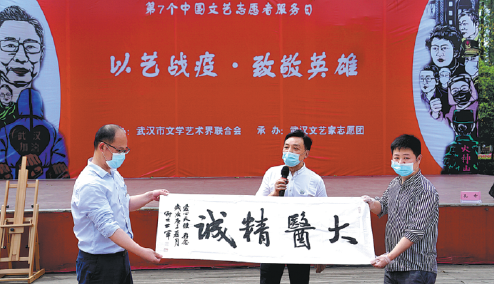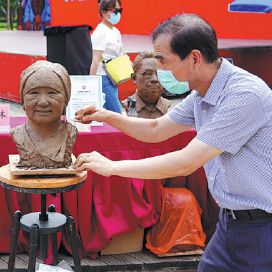How literature, art helped lockdown residents


Diaries
When the coronavirus engulfed the city, people from all walks of life started keeping diaries to record their activities and feelings.
The diaries were not only written by authors and journalists, who are accustomed to expressing emotions through words, but also medical workers and regular residents, who recorded what they saw and felt as the city was sealed off.
Ye Qing, deputy director of the Hubei Bureau of Statistics, started a column called "My Nth Day in virus-stricken Wuhan", recording his observations in the city from Jan 23 to April 8, the day the lockdown officially ended, and encouraging residents to fight together.
"I was bitten by the writing bug, and I wanted to tell other people what was happening in the city. As I work for the bureau of statistics and am also a political adviser who is not a member of the Chinese Communist Party, I recorded the development of the epidemic, the control measures being taken and their effects to better inform people," Ye said.
The diary was first published on Z.H.ISLAND, a high-end online-to-offline networking platform for entrepreneurs around the world, but it later spread to the Pangoal Institution, a public policy think tank, and other media outlets.
The public is supposed to get the facts, rather than rumors from unaccountable sources, Ye, 58, said.
He added that he also used the short-video platform Kuaishou to livestream details of interesting stories about economics during the lockdown.
According to Ye, one of the key reasons Wuhan people won the battle was the professional knowledge provided by people such as Zhong, the epidemiologist.
"The epidemic fully proved that knowledge is power," he said, stressing that scientific guidance led to effective measures including the city lockdown and the makeshift hospitals, which greatly contributed to curbing the spread of the virus.
"We are all primary school students in the face of a new virus. No matter whether we are an official or a scholar, we have to listen to the medical academicians at critical times," he said.
Based on his experiences dealing with the epidemic in Wuhan, he proposed as a political adviser that directors of health commissions at all levels should be medical professionals, and one of the deputy governors of each province should oversee health policy rather than focusing on finance.





































